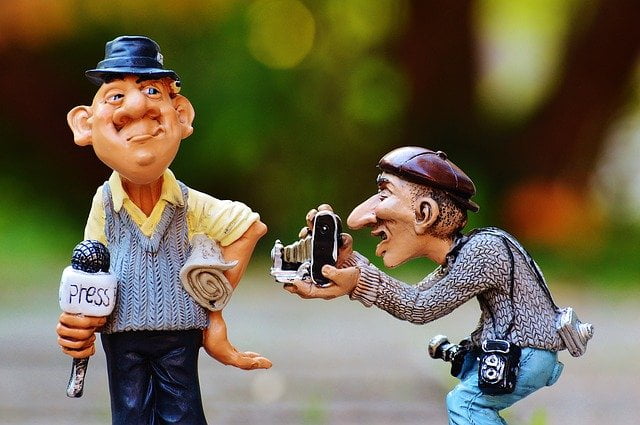Journalism In A Crisis: Time To Save It From Street Entertainers
Is journalism a respectable profession anymore? The previous column — What After Pimp & Tout… — raised this concern. Some journalist friends have accused one of generalising an aberration. The extrapolation is flawed, they argue. You cannot tarnish the image of the entire community just because there are a few bad apples. Which profession does not have rogues? However, they broadly accept that the quality of journalism has deteriorated sharply over the last ten years. If the trend continued, they won’t advise their children to have this profession as a career option.
And yes, they certainly wouldn’t like their kids to be called ‘pimp’, ‘tout’, ‘prostitute’ and similar names no matter how much they earn from the profession or how much TRP they fetch for their organisation. They would like the image of journalists to improve in public perception so that they are treated with respect, not contempt.
They are on the money on most points but the bad apple part needs elaboration. A few rogue characters in the profession normally won’t be such a big problem. We always had them. But they survived on the fringes, outnumbered and outshone by journalists who went about their job with dignity. They built the trust capital with their target audience that gave journalism its aura of respectability. The fringe is mainstream now. The aberration is normal. The bad ones are backed and promoted by top organisations in the news business, quite a few of which are helmed by journalists. When people of abysmal quality get to ride on their reach and brand value, they assume a magnified presence. For a huge section of television viewers the primetime rabid rabble-rousers become ‘the media’, not those who put in diligent work to bring truth to people.
When faces of the media outlets flaunt their political loyalty unabashedly and behave like hypercharged party workers, it’s only normal that they would be treated as political rivals by others. Politics is generally dirty and toxic. If television programmes mimic politics on the ground, it’s no surprise that they will carry all its crudeness too. Party workers in the media have gradually shrunk the space for journalists. They wouldn’t mind being called pimps or prostitutes or chu..yas. But when such an impression of journalists gets entrenched in the public mind, the dignity of the profession stands seriously damaged.
In hindsight though, the protest against the so-called ‘Godi’ media and ‘B&D’ media maybe misdirected. The real culprits are not editors or anchors the social media anger is directed at; it’s news organisations that allow them free play. When they want their content to be vulgar and cheap they will find people to deliver vulgarity and cheapness. When they decide to abandon ethics and principles, they will find people eager to take the responsibility to kill both. Now, where does that leave those passionate about the profession and those who take pride in it?
It’s not the political leaning or ideological tilt of news organisations or individuals that is a point of worry. It’s normal, even good, to have a political view. But how far can we go with it? In private, one is free to defend such views through blatant lies and boorish behaviour but when the media uses the same tactic it amounts to propaganda. In every profession, more so in journalism, there is a red line of propriety and decency that must be respected. When a harassed guest on a panel discussion tells the lady host of a show to quit journalism and enter ‘dhanda’ , you know the line has disappeared. The news organisation allowing debates to sink this low is as much responsible for this situation as the host.
The new trend has led to the erosion of trust capital. Journalists talking facts and figures risk inviting ridicule these days. It is an everyday experience. Speak to friends and you realise facts are no more sacrosanct. They can be Congressi or Sanghi (read BJP); figures can be Left or Right, and truth can have many versions. Thanks to the ugly media, journalists as a class have landed in a crisis of credibility. You cannot expect better when a section among them reinvents itself as jokers in a circus or street entertainers. The dumbing down has made even the obnoxious social media more trustworthy than conventional media.
Journalism must wake up to the new reality. When trust vanishes, so does the very reason for its existence. It has to save itself from rogues within, which include media organisations too.


Comments are closed.